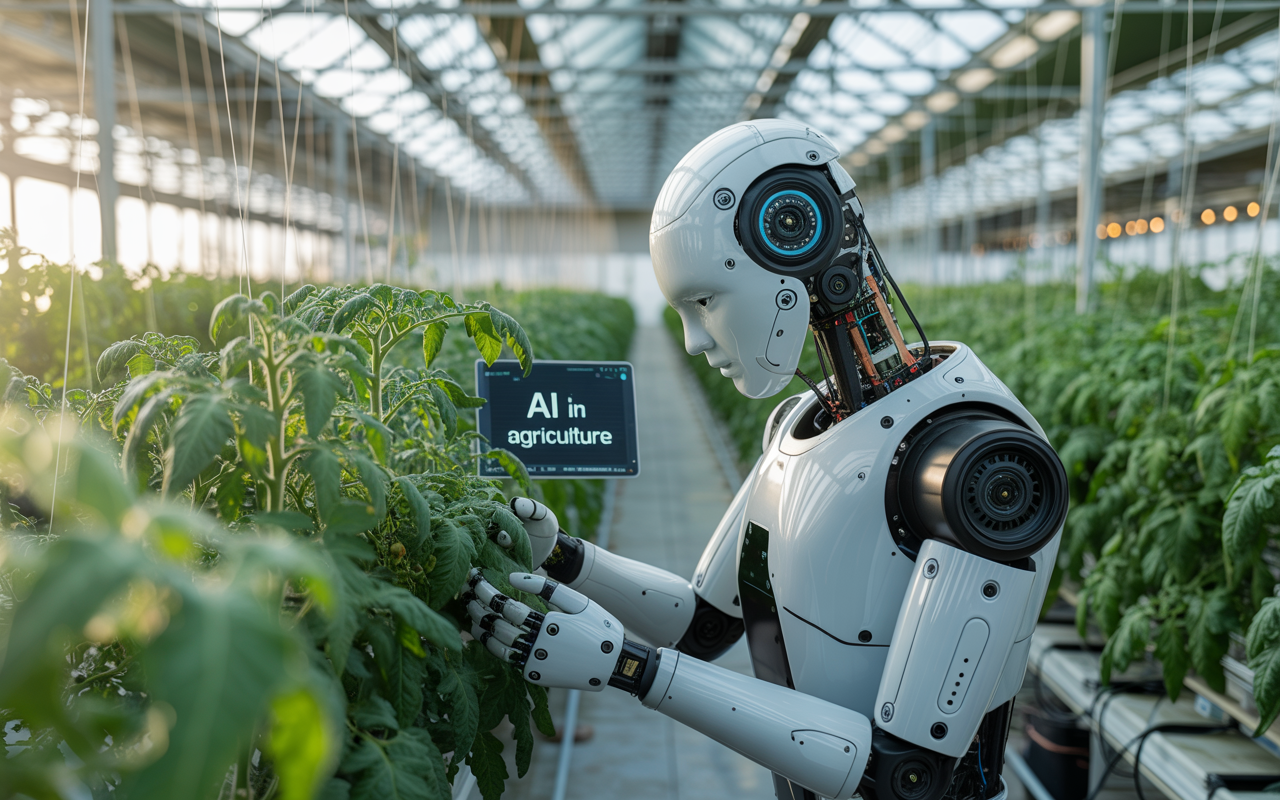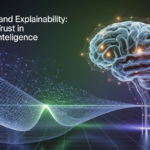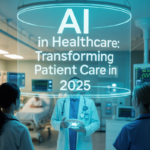Introduction
Artificial Intelligence (AI) is revolutionizing agriculture by enhancing productivity, sustainability, and resilience. From precision farming to pest control, AI-driven technologies are transforming traditional farming practices.
Precision Farming
AI enables farmers to make data-driven decisions by analyzing soil health, weather patterns, and crop conditions. For instance, KissanAI’s Dhenu 1.0, an agriculture-specific language model, provides Indian farmers with tailored advice in multiple languages, improving crop yields and reducing costs. Wikipedia
Pest and Disease Management
Innovations like the AI-based bollworm management system launched by India’s Agriculture Minister aim to combat pest infestations in cotton crops. Similarly, researchers at IIT Kharagpur have developed a robotic system that detects plant diseases and applies pesticides precisely, minimizing chemical usage and health risks. The Times of IndiaThe Times of India
Empowering Smallholder Farmers
AI tools are empowering smallholder farmers by providing access to advanced technologies. In rural India, AI-powered weather forecasting has improved climate resilience, reduced debts, and increased savings, demonstrating the transformative potential of AI in agriculture. Reuters
Conclusion
AI is ushering in a new era of agriculture, characterized by increased efficiency, sustainability, and inclusivity. By embracing AI technologies, farmers can enhance productivity and contribute to global food security.
2. AI in Transportation: Driving Towards a Smarter Future
Introduction
The transportation industry is undergoing a significant transformation, with Artificial Intelligence (AI) at the forefront. From autonomous vehicles to smart public transport systems, AI is enhancing safety, efficiency, and user experience.
Autonomous Vehicles
Companies like May Mobility are pioneering autonomous vehicle technology. In partnership with Lyft, they plan to launch autonomous vehicles in Atlanta, aiming to improve urban mobility. In Japan, May Mobility’s collaboration with Toyota and NTT Group is set to enhance transportation networks through AI-driven solutions.Wikipedia
Smart Public Transportation
The Maharashtra State Road Transport Corporation (MSRTC) has introduced 3,000 AI-equipped smart buses to enhance passenger safety and comfort. These buses feature real-time monitoring and predictive maintenance, reflecting a commitment to modernizing public transportation. The Times of India
Conclusion
AI is revolutionizing transportation by introducing intelligent systems that improve safety, efficiency, and user satisfaction. As technology continues to evolve, AI will play an increasingly vital role in shaping the future of mobility.
3. AI in Cybersecurity: Safeguarding the Digital Frontier
Introduction
As cyber threats become more sophisticated, Artificial Intelligence (AI) is emerging as a critical tool in cybersecurity. AI enhances threat detection, response, and prevention, ensuring robust protection in the digital age.
Advanced Threat Detection
AI-powered systems like Google’s on-device scam detection analyze billions of messages monthly to identify and alert users about potential scams, including complex schemes like investment frauds. WIRED
Adaptive Defense Mechanisms
Research into dynamically retrainable firewalls highlights AI’s ability to adapt to emerging threats in real-time, offering a proactive approach to network security. arXiv
Combating Deepfakes
India’s Vastav AI, developed by Zero Defend Security, is a deepfake detection system that analyzes digital media for authenticity, providing forensic insights into manipulated content. Wikipedia+1Wikipedia+1
Conclusion
AI is redefining cybersecurity by providing intelligent, adaptive, and robust defense mechanisms. As cyber threats evolve, AI will be instrumental in safeguarding digital assets and privacy.
4. AI in Manufacturing: Revolutionizing Industry 4.0
Introduction
Artificial Intelligence (AI) is transforming manufacturing by enhancing efficiency, reducing downtime, and enabling predictive maintenance. AI-driven technologies are central to the evolution of Industry 4.0.
Predictive Maintenance
Unplanned equipment failures cost companies significantly. AI and robotics are being utilized for predictive maintenance, analyzing sensor data to detect and address machinery issues before they escalate. Business Insider
Humanoid Robots in Manufacturing
China is advancing the use of AI-powered humanoid robots in manufacturing, with startups like AgiBot and MagicLab deploying robots capable of complex tasks, including assembly and quality control. These developments aim to address economic challenges and labor shortages. Reuters
Conclusion
AI is revolutionizing manufacturing by introducing intelligent systems that enhance productivity, reduce costs, and address labor challenges. Embracing AI technologies is essential for manufacturers aiming to thrive in the era of Industry 4.0.


